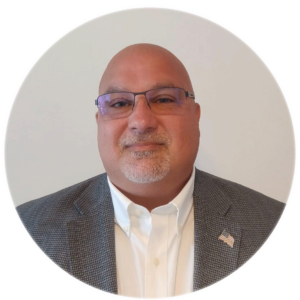Medical billing fraud is a rampant problem that affects all areas of the healthcare industry. Unfortunately, rehabilitation (rehab) therapy fraud is on the rise, posing significant challenges for the healthcare system, taxpayers, and patients alike.
In this article, we will delve into the world of rehab therapy fraud, identifying red flags that rehabilitation therapists and healthcare workers should watch out for. We’ll also describe how to report fraud if you witness it so you can help combat fraud and protect your profession’s integrity.
What is Rehab Therapy Fraud?
Physical, occupational, or speech therapy fraud occurs when practitioners, administrators, or facilities exploit the billing system to overcharge, receive payments for services not provided, or engage in other deceptive practices. This often occurs with contracted rehab therapy organizations operating within skilled nursing homes and other types of healthcare facilities.
This unethical behavior not only results in significant financial losses to Medicare and Medicaid programs but also undermines the trust patients place in the healthcare system. Furthermore, it diverts resources from those who genuinely require medical attention.
Rehab therapy fraud significantly impacts the healthcare system, burdening it with unnecessary costs and driving up insurance premiums. As healthcare professionals, it is crucial to be vigilant in detecting and reporting fraud to preserve the industry’s credibility.
How to Spot Rehab Therapy Fraud
To combat therapy fraud effectively, it is essential for therapists, therapy assistants, medical coders, and other professionals in the field to recognize the red flags associated with suspicious billing practices.
Here are some common red flags to watch out for:
- Changes in Billing Patterns: Keep an eye on billing practices that deviate significantly from the norm or documented process. Unusually high billing rates, particularly for certain procedures or treatments, may indicate fraudulent behavior. A good rule of thumb: if something feels off, it probably is.
- Kickbacks: Be cautious of any offers or incentives from third parties in exchange for referrals, new hires, or patient volume. Kickbacks are illegal and can signal potential fraud and misuse of healthcare funds.
- Self-Referrals: Be suspicious of referrals of designated health services (DHS) for Medicare and Medicaid patients if the physician (or an immediate family member) has a financial relationship with that entity, including ownership, Medical Director status, investment interest, and/or compensation arrangements.
- Excessive or Unnecessary Procedures: Be mindful of situations where patients are being prescribed more treatments or services than necessary. Unjustified treatment plans could be a sign of fraud.
- Double Billing: Look for instances where the same service or treatment is billed twice, leading to unwarranted reimbursements.
- Unbundling: Be aware of practices that unbundle services that are typically billed together. This tactic can lead to higher reimbursements than warranted.
- Phantom Billing for Services Not Rendered: Watch out for billing claims for services that were never provided to patients. This deceptive practice is a clear indicator of fraud.
- Billing for Rehab Therapy Services Provided by Aides: Similar to upcoding, fraud can occur if a service was provided by a therapy aide or assistant while being billed as a physician service. This constitutes fraud because the billed service is coded as if it was provided by the physician without the same level of certified care, producing a false claim.
- Billing for One-on-One Services: Be cautious of group therapy sessions being billed as one-on-one sessions. If a rehab therapy treatment was administered to multiple patients at the same time with no direct 1-on-1 contact, it could be considered fraud if billed to each patient as one-on-one care.
- Falsifying Documentation: Be alert for any instructions or signs of tampering with patient records or falsifying documentation to support fraudulent billing claims. Proper and accurate documentation is essential in maintaining the integrity of healthcare services.
What to Do If You Suspect Fraud
If you encounter any of these red flags or suspect other forms of rehab therapy fraud in your skilled nursing facility, it is crucial to take action promptly. Reporting healthcare fraud is essential to protect patients, taxpayers, the healthcare system, and your profession’s integrity.
Contact us today to discuss your concerns confidentially. Our team of professionals is experienced in handling medical billing fraud cases and will guide you through the reporting process step-by-step.
Remember, reporting fraud is a courageous act, and you may be entitled to up to 30% of the recovered funds if your case leads to a successful resolution. Your actions can make a significant impact in upholding the values of the healthcare industry.
Stop Rehab Therapy Fraud in Its Tracks
Medical billing fraud is a pervasive issue that affects all aspects of the healthcare system. Rehab therapy fraud, in particular, has been on the rise, causing financial losses and eroding patient trust. As physical therapists and healthcare workers, it is our responsibility to be vigilant in identifying and reporting fraudulent activities.
By recognizing the red flags associated with rehab therapy fraud, such as suspicious billing patterns, kickbacks, and phantom billing, you can take the necessary steps to combat this problem. If you suspect fraud, don’t hesitate to reach out for a no-obligation and confidential consultation. The False Claims Act also offers whistleblowers protection against job retaliation or wrongful termination.
Remember, it is never too late to shed light on fraud. Reporting fraudulent activities not only protects patients and taxpayers but also preserves the integrity of the healthcare industry for generations to come. Together, we can create a healthcare system built on trust, honesty, and excellence!
authored by Christopher J. Piacentile
Director of Investigations DJO Whistleblower Law Group



